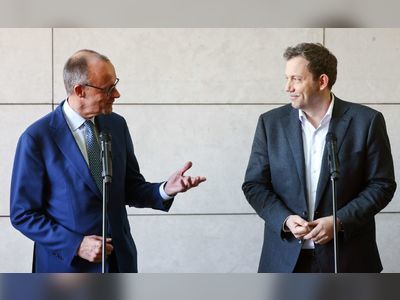
U.S. Secretary of State Announces Plan to Dissolve USAID by July 2025
Marco Rubio outlines the shift in foreign aid responsibilities and the future direction of U.S. international development efforts.
U.S. Secretary of State Marco Rubio has detailed a comprehensive plan to dissolve the United States Agency for International Development (USAID) entirely by July 1, 2025. This announcement signals a considerable transformation in U.S. foreign aid strategy, marking a departure from the agency's historical role in managing global humanitarian projects.
In his communication to Congress, Rubio expressed that certain functions of USAID would be reassigned to the State Department, whereas other duties that do not align with the current administration's focus will be phased out.
The Secretary of State assessed that USAID had diverged from its foundational mission over the years, suggesting that the perceived benefits of the agency's initiatives were minimal compared to their financial costs.
Rubio attributed the momentum for dismantling USAID to the reforms initiated during the presidency of Donald Trump, framing the agency's previous operations as part of a 'misguided and fiscally irresponsible era' of U.S. foreign assistance.
The operational changes at USAID had already commenced in February 2025 under the Trump administration, leading to significant debate and scrutiny from various legal and civic entities.
Following the announcements, a federal judge ruled in March that the expedited closure of USAID might contravene several provisions of the U.S. Constitution, reflecting the contentious nature of the proposed changes.
Established in 1961, USAID has been recognized as one of the largest international development entities worldwide, tackling a diverse range of global challenges, including health epidemics such as AIDS and supporting recovery in nations affected by conflict.
This dissolution raises questions about the future of U.S. engagement in international development and the specific areas of global need that may remain unaddressed amid the transition.
In his communication to Congress, Rubio expressed that certain functions of USAID would be reassigned to the State Department, whereas other duties that do not align with the current administration's focus will be phased out.
The Secretary of State assessed that USAID had diverged from its foundational mission over the years, suggesting that the perceived benefits of the agency's initiatives were minimal compared to their financial costs.
Rubio attributed the momentum for dismantling USAID to the reforms initiated during the presidency of Donald Trump, framing the agency's previous operations as part of a 'misguided and fiscally irresponsible era' of U.S. foreign assistance.
The operational changes at USAID had already commenced in February 2025 under the Trump administration, leading to significant debate and scrutiny from various legal and civic entities.
Following the announcements, a federal judge ruled in March that the expedited closure of USAID might contravene several provisions of the U.S. Constitution, reflecting the contentious nature of the proposed changes.
Established in 1961, USAID has been recognized as one of the largest international development entities worldwide, tackling a diverse range of global challenges, including health epidemics such as AIDS and supporting recovery in nations affected by conflict.
This dissolution raises questions about the future of U.S. engagement in international development and the specific areas of global need that may remain unaddressed amid the transition.
AI Disclaimer: An advanced artificial intelligence (AI) system generated the content of this page on its own. This innovative technology conducts extensive research from a variety of reliable sources, performs rigorous fact-checking and verification, cleans up and balances biased or manipulated content, and presents a minimal factual summary that is just enough yet essential for you to function as an informed and educated citizen. Please keep in mind, however, that this system is an evolving technology, and as a result, the article may contain accidental inaccuracies or errors. We urge you to help us improve our site by reporting any inaccuracies you find using the "Contact Us" link at the bottom of this page. Your helpful feedback helps us improve our system and deliver more precise content. When you find an article of interest here, please look for the full and extensive coverage of this topic in traditional news sources, as they are written by professional journalists that we try to support, not replace. We appreciate your understanding and assistance.











